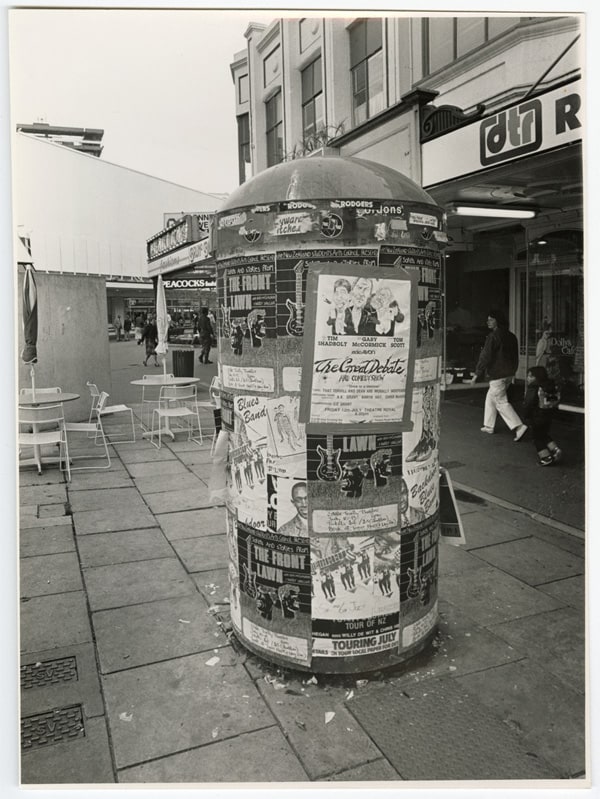
Phantom started sticking posters to walls way back in 1982.
That’s an awful lot of gluey buckets, flyaway paper and 4am starts.
It’s been one helluva ride. So what have we learned along the way – and what’s in it for property owners and managers?
Lesson 1: Make the business a win/win proposition
Back in the early 80s, the poster business operated under Wild West conditions. Councils, landlords and the law barely tolerated our efforts. Rival crews spent half the night covering the posters others had pasted up earlier.
This was not a sustainable business model.
At Phantom, we could see a much better way of operating. It involved making sure all the stakeholders had something to gain.
Property owners could gain revenue.
Advertisers could benefit from a higher level of quality and accountability.
Municipal authorities could gain an attractive and well-regulated streetscape.
So we started paying property owners for the space on their walls, giving them a brand-new revenue stream. Phantom then took responsibility for maintaining their sites, providing frames, cleaning up after taggers, and even installing upgrades such as lighting.
At the same time, we needed to persuade Councils to stop treating posters as an affront to civic tidiness. So we worked with them to modernise bylaws and create legally permitted street poster sites. This was the key to turning sterile and depressing streetscapes into a constantly-changing display of creativity.
It may sound obvious now but it was a big deal at the time. No one else was offering to pay property owners and doing the hard yards with municipal rule-makers.
In fact, Phantom Billstickers has been a global pioneer in transforming street posters into a reputable arm of the marketing business.
Even today, few countries can boast a poster network with the nationwide scale, professionalism and quality of ours.
Lesson 2: Don’t rest on your laurels
Sticking a message on a wall may be one of the world’s oldest forms of advertising.
But we realised we needed to keep evolving.
Clients weren’t going to commit serious money unless they could be sure their posters would look great. So Phantom partnered with suppliers to ensure our posters were beautifully printed and wrinkle-free – and didn’t fall off the wall in New Zealand’s rainy climate.
Advertisers and media planners also needed certainty. They wouldn’t commit to street posters unless we could prove their brand campaigns had appeared in the frames they’d booked, for the entire period they were paying for.
Our response was a unique app, called Pasted, It captures every Phantom poster when it goes up and sends time-stamped, photographic proof to the client.
Phantom has also created some smart planning tools that give marketers the ability to target sites near their key stockists, so they can drive sales from people who are on a mission to shop.
It’s about adding value to poster sites – and making sure those marketing budgets continue to reach our site owners.
Lesson 3: Never lose your connection with the street
You’ve seen how the street poster business has changed out of sight over four decades.
But it’s just as important to remember that the fundamentals have never changed.
Phantom got into this business to help support the creative arts in this country. Selling tickets for bands, promoting music, providing a space for artists and anyone else with a vision they want to place before the public.
It’s a business but it’s also a passion. And the great thing is – it’s sustainable.
By providing certainty for our partners, we can continue to fund ‘flora for the concrete jungle.’ It all starts on the street.
So what’s next?
2022 is our 40th birthday so we have some celebrations in the works
A book is being published. There will be festivities. And giveaways.
We’d like to share the good times with you, so keep an eye on your inbox and make sure you follow our socials.